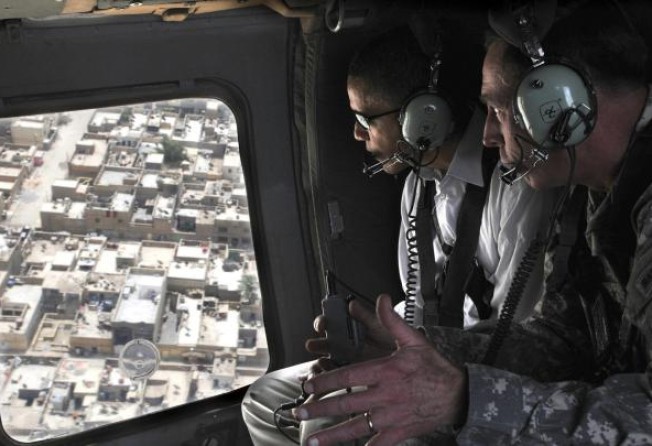
Barack Obama's next CIA chief must be chosen with care
Disgraced Petraeus provided both political cover and experience, and will not be easily replaced

US President Barack Obama has begun searching for a new CIA director at what many administration officials say is an especially awkward time: in the midst of investigations about the killing of the US ambassador in Benghazi, Libya; at a crucial moment in a covert war against Iran; and just as the administration is considering a more active role in Syria.
In each of those arenas, David Petraeus, who resigned on Friday because of an extramarital affair with the author of a flattering book about his military career, provided Obama with both experience and political cover. A hero among Republicans for his service in Iraq and Afghanistan - and his occasional public disagreements with the president over troop withdrawals - Petraeus had just returned from a long trip to Libya and the Middle East when news of the scandal broke.
The trip was a reminder, one senior administration official said on Sunday, of the depth of the relationships the retired general had nurtured throughout a long military career in the region, which Obama was relying on.
"He's pretty critical to everything we've got on the table," the official said. "At a moment when there is about to be a lot of turnover, Petraeus was going to be a source of stability."
Even before Petraeus' arrival at the intelligence agency, where he redecorated the director's suite with guns and other memorabilia from his days in Iraq and Afghanistan, the CIA's influence in Washington was growing considerably.
Its covert drone programme became Obama's weapon of choice to attack al-Qaeda in the tribal areas of Pakistan. And a special unit of the agency became responsible for an attack on Iran's nuclear complex that was referred to as "Olympic Games", the first use of US cyberweapons against another state. Increased use of CIA paramilitary forces brought the agency closer than any time in decades to its roots, in the clandestine operations run by the Office of Secret Services in the second world war.
Petraeus, by his own account, was initially an uneasy fit at the agency, but later became accustomed to its non-hierarchical structure. "The CIA, thanks to its seasoned and highly educated work force, does not need a heavy hand on the reins," Petraeus said in a speech in September. "A light touch is generally all that is required."
Several current and former officials of US intelligence agencies said they believed that Obama might move quickly to nominate Petraeus' deputy, Michael Morell, as his replacement. That would put the agency's most respected intelligence analyst at the head of the organisation. Morell is of the "light touch" school, and clearly the favourite inside the headquarters of the agency in Langley, Virginia.
The president could also choose the man inside the White House who is considered by many to be overseeing the entire US intelligence infrastructure from his office in the White House: John Brennan, a retired CIA operative who once headed its station in Saudi Arabia.
By all accounts, Brennan and Morell have developed strong relationships with Obama over the past four years. Both were central players in the operation to find and kill Osama bin Laden.
Brennan was considered for the job four years ago. But he withdrew when some human rights advocates accused him - unfairly, he said - of supporting or tolerating torture while he was a top aide to George Tenet, the CIA director from 1997 to 2004. Similar accusations have dogged many other agency veterans.
Bruce Riedel, who worked for 30 years at the CIA and is now at the Brookings Institution, said he thought Brennan would be at the top of the list of candidates.
"He's got the president's confidence," Riedel said. "He knows as much about intelligence as anyone I know." Reidel said he thought the claims of support or tolerance for torture would probably not be an obstacle any longer. "After four years, no one doubts John's determination and ability to fight terrorism without using torture," he said.
